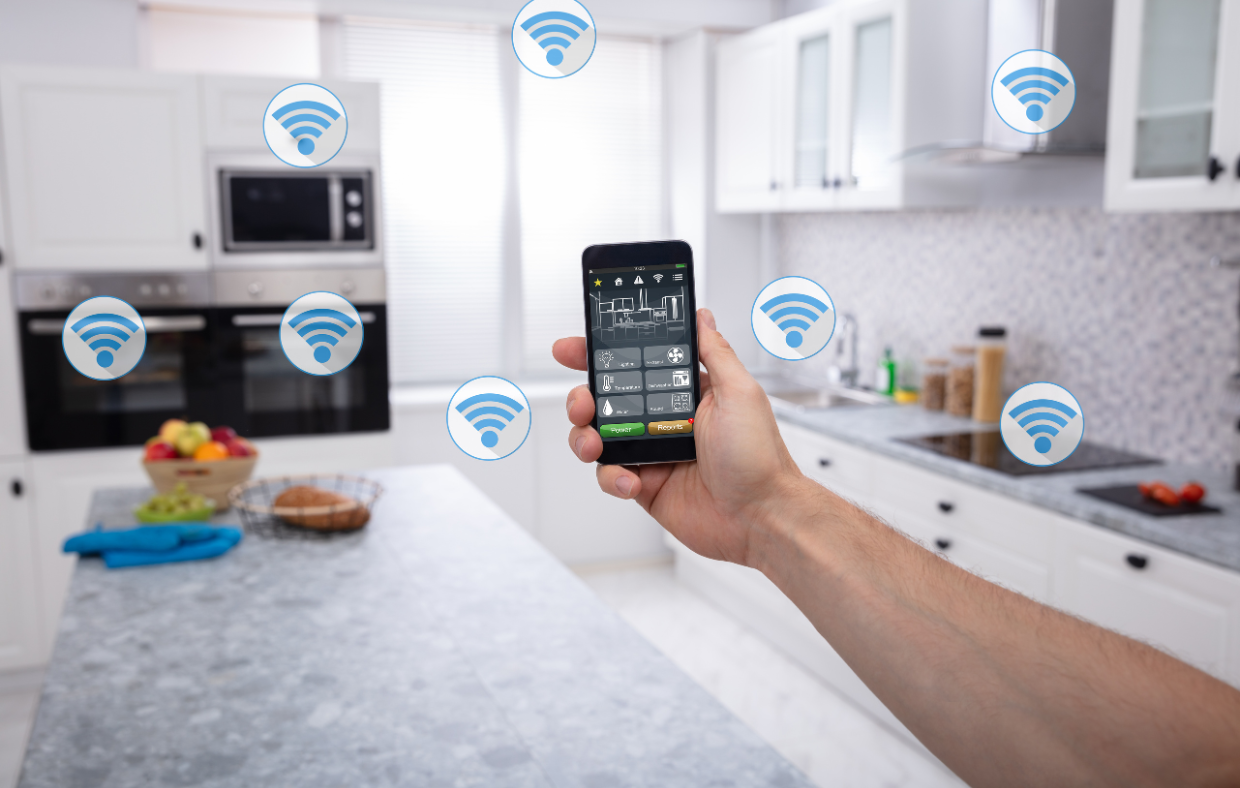
In the dynamic landscape of contemporary kitchen design, the infusion of smart technologies has become a hallmark of innovation, promising not only heightened efficiency but a redefined cooking experience. Moving beyond the conventional roles of kitchen appliances, these intelligent technologies are reshaping the way we interact with our culinary spaces. Let’s explore the transformative impact of smart technologies on the modern kitchen.
1. Smart Refrigerators
The humble refrigerator has undergone a remarkable evolution with the advent of smart technologies. Modern smart fridges come equipped with touchscreens, cameras, and internet connectivity. Imagine being at the grocery store and checking the contents of your fridge via a mobile app or receiving alerts about items nearing their expiration date. These features not only enhance convenience but also reduce food waste.
2. Smart Ovens and Ranges
Say goodbye to the days of second-guessing whether the oven was turned off. Smart ovens and ranges now offer remote monitoring and control through smartphone apps. Preheat your oven on your way home, adjust cooking temperatures, and receive notifications when your dish is ready. These features bring a new level of flexibility to meal preparation.
3. Smart Coffee Makers
For coffee enthusiasts, smart coffee makers are a game-changer. Schedule your coffee brewing time, adjust the strength of your brew, and even receive notifications when it’s time to refill the water or coffee beans. These intelligent devices ensure that your perfect cup of coffee is ready when you are.
4. Smart Dishwashers
Dishwashing is no longer a mundane chore with the introduction of smart dishwashers. These appliances can be controlled remotely, allowing you to start or schedule a wash cycle from your smartphone. Some models even have sensors that assess the level of dirt on your dishes and adjust the wash settings accordingly, optimizing water and energy usage.
5. Touchless Faucets
In the age of heightened hygiene awareness, touchless faucets have become a staple in modern kitchens. Activated by motion sensors, these faucets minimize the need for physical contact, reducing the spread of germs. They are not only practical but also add a sleek and modern aesthetic to the kitchen.
6. Smart Lighting Systems
Illuminate your kitchen with precision and style using smart lighting systems. These systems allow you to adjust the brightness and color temperature of your lighting through smartphone apps or voice commands. Create different lighting moods for cooking, dining, and entertaining, all with a touch or a voice command.
7. Smart Ventilation Systems
Efficient ventilation is crucial in the kitchen, and smart ventilation systems take this to the next level. These systems automatically adjust fan speeds based on cooking activities, ensuring optimal air quality. Some models even sync with cooktops to activate when they detect increased heat.
8. Smart Home Assistants
Virtual assistants like Amazon’s Alexa or Google Assistant have found their way into the kitchen, becoming invaluable sous chefs. From setting timers and converting measurements to providing recipe recommendations and controlling other smart devices, these assistants make multitasking in the kitchen a breeze.
9. Smart Food Storage Solutions
Smart technologies extend to food storage with innovations like smart containers and refrigerator cameras. These devices help you keep track of food inventory, suggest recipes based on available ingredients, and even notify you when items are about to expire.
10. Smart Kitchen Scales
Precision in cooking is simplified with smart kitchen scales. These scales connect to apps on your smartphone or tablet, allowing you to follow recipes with precise measurements. Some models even provide nutritional information for a more informed approach to meal planning.
In conclusion, smart technologies are reshaping the modern kitchen into a space that is not only efficient but also responsive to the needs and preferences of users. The integration of these intelligent devices brings a level of connectivity and control that was once unimaginable. As we look ahead, the kitchen continues to evolve as a dynamic and adaptive environment, embracing technologies that enhance the joy of cooking and the overall culinary experience.
